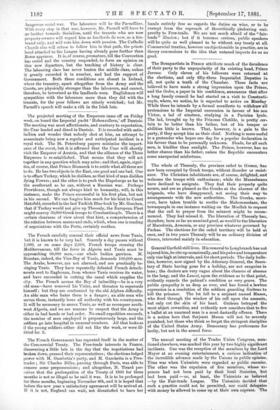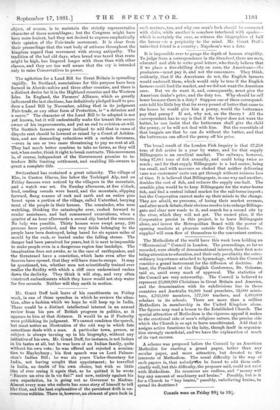The annual meeting of the Trades Union Congress, men- tioned
elsewhere, was marked this year by two highly significant incidents. One was the reception of the members by the Lord Mayor at an evening entertainment, a curious indication of the incredible advance made by the Unions in public opinion. Time was when Unionists were regarded as public enemies. The other was the expulsion of five members, whose ex- penses had not been paid. by their local Societies, but had been paid — or, at least, the Unionists so believed —by the Fair-trade League. The Unionists decided that such a practice could not be permitted, nor could delegates with money be allowed to come up at their own expense. The
object, of course, is to maintain the strictly representative character of these assemblages ; but the Congress might have been more lenient, had they not desired to express emphatically their opinion of the Fair-trade movement. It is clear from their proceedings that the vast body of artisans throughout the kingdom regard that movement with strong antipathy. The tradition of the bad old days, when bread was taxed that rents might be high, has lingered longer with them than with other classes, and they are too well aware that the cry is intended only to raise Conservatives to power.































 Previous page
Previous page